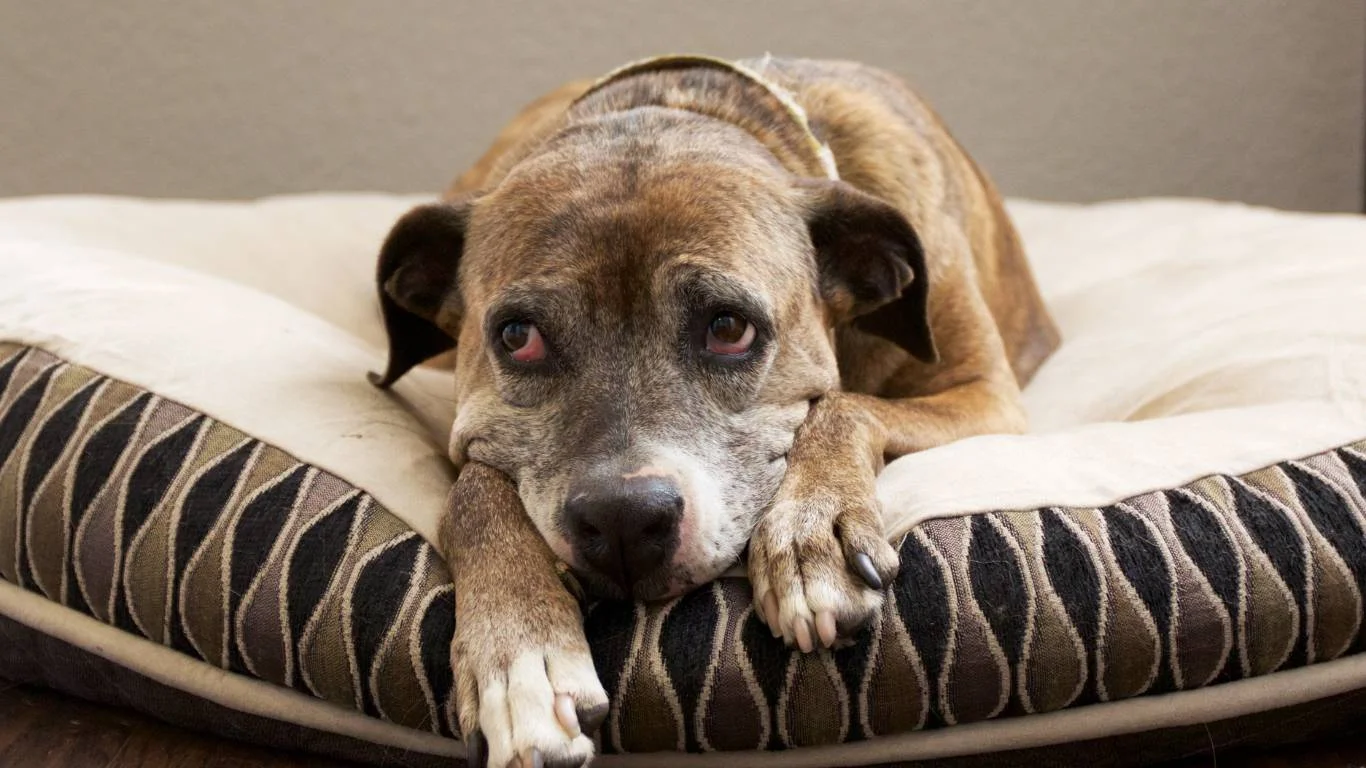How to Soothe a Dog’s Sore Throat Quickly and Naturally
If you’ve ever noticed your dog coughing, gagging, or seeming uncomfortable when swallowing, you might be wondering how to soothe a dog’s sore throat. It’s one of those things that, as a veterinary assistant with a nutrition focus, I’ve seen quite a bit in the clinic—and trust me, it can be just as worrying for the pet parent as it is uncomfortable for the furry friend. Thankfully, with a bit of care, some simple remedies, and a keen eye for symptoms, you can help your pup feel more comfortable while keeping an eye out for any signs that need professional attention.
Understanding What Causes a Dog’s Sore Throat

Before diving into soothing techniques, it’s important to understand why your dog’s throat might be sore in the first place. Just like humans, dogs can experience throat irritation from a variety of reasons. Common causes include:
- Infections: Bacterial or viral infections can cause inflammation, leading to soreness.
- Allergies: Environmental allergens or food sensitivities might trigger throat irritation or coughing.
- Irritants: Smoke, dust, or even certain chemicals can cause throat discomfort.
- Foreign objects: Sometimes dogs pick up small sticks, grass awns, or other debris that can scratch or lodge in their throat.
- Excessive barking or coughing: Overuse of the vocal cords can cause soreness, especially if your dog has been stressed or excited for a prolonged period.
In my experience working with pets, it’s often a combination of mild irritants and allergies that cause these symptoms. I’ve had clients bring in dogs who were just coming out of seasonal allergies, and soothing the throat was a key part of their recovery.
Signs Your Dog Might Have a Sore Throat
Dogs can’t tell us directly when they’re uncomfortable, so it’s all about reading the signs. Here are some telltale clues to watch for:
- Coughing or gagging: This is the most obvious indicator that something’s bothering their throat.
- Difficulty swallowing: They might paw at their mouth, drool excessively, or show reluctance to eat or drink.
- Change in bark: A hoarse or quieter bark than usual can signal throat irritation.
- Lethargy or irritability: If your dog is less playful or seems cranky, discomfort could be the culprit.
When I spot these signs, I always recommend that pet parents start with gentle care at home, but stay alert for any worsening symptoms.
How to Soothe a Dog’s Sore Throat: Practical Steps You Can Take

Now, the part everyone wants to know: how to actually help your dog feel better. From my hands-on work with dogs and their owners, here are some practical, easy-to-implement tips that can provide relief:
1. Keep Them Hydrated
Hydration is key when soothing any kind of throat irritation. Warm water can be especially comforting, much like a warm drink for us when we’re feeling under the weather. You can even add a bit of low-sodium chicken broth to entice them to drink more.
2. Offer Soft, Easy-to-Swallow Food
A sore throat means swallowing can hurt, so swap out hard kibble for something gentle. Softened wet food, or even a homemade mash of cooked chicken and rice, can make mealtimes less painful. When I’ve suggested this to pet parents, they often tell me their dogs perked right up with the easier meals.
3. Create a Calm, Dust-Free Environment
Dust, smoke, and strong fragrances can worsen throat irritation. Make sure your dog’s resting area is clean, well-ventilated, and free from airborne irritants. In clinics, we often see improvement just by reducing environmental triggers.
4. Use Natural Soothing Remedies with Vet Approval
Some natural remedies, like a small amount of raw honey, can coat the throat and provide relief. But, always check with your vet before introducing anything new. In my experience, some owners find these natural options effective for mild irritation, but vet guidance is essential to avoid risks.
When to See a Vet: Knowing the Red Flags

While soothing a dog’s sore throat at home can work wonders for mild cases, there are definitely times when a professional checkup is non-negotiable. From my experience working alongside vets, I can tell you it’s better to be safe than sorry—especially when the throat is involved, since it can affect breathing and swallowing.
Here are some red flags that should prompt an immediate vet visit:
- Persistent or worsening cough: If your dog’s coughing lasts more than a few days or intensifies, it’s a sign something more serious might be going on.
- Difficulty breathing or noisy breathing: Any signs of labored breathing, wheezing, or gasping require urgent veterinary attention.
- Excessive drooling or choking: This might indicate a blockage or injury in the throat.
- High fever or lethargy: These symptoms often accompany infections that need medical treatment.
- Refusal to eat or drink for more than 24 hours: Dehydration can set in quickly, especially if swallowing is painful.
I’ve had cases where pet parents waited too long and the issue turned out to be tonsillitis or even a throat injury that needed more advanced care. So, trust your gut—if something feels off, a vet visit is the best call.
What Your Vet Might Do
During the exam, the vet will likely check your dog’s throat for redness, swelling, or foreign objects. Sometimes they’ll use a special tool to get a better look or take samples to test for infections. If necessary, X-rays might be ordered to rule out deeper issues like tumors or obstructions.
In cases of infection, the vet might prescribe antibiotics or anti-inflammatory medications. For allergies, they may recommend antihistamines or a special diet. Knowing exactly what’s causing the sore throat helps target treatment and speeds recovery.
Nutrition Tips to Support Throat Healing

Since my background is nutrition-focused, I can’t stress enough how much diet impacts your dog’s recovery when dealing with throat issues. Food isn’t just fuel; it’s a tool to help soothe irritation and support the immune system.
Choose Soothing, Nutrient-Rich Foods
Think about foods that are gentle on the throat and packed with nutrients:
- Soft proteins: Cooked chicken, turkey, or lean fish are easy to swallow and great sources of healing amino acids.
- Vegetable purees: Carrots, pumpkin, and sweet potatoes offer vitamins and fiber without irritating the throat.
- Hydrating foods: Incorporate broths or water-rich foods to keep your dog hydrated and comfortable.
When I advise pet parents, I often recommend homemade meals or carefully selected wet foods that avoid additives or harsh preservatives, which could exacerbate inflammation.
Avoid Irritants in Their Diet
Some ingredients can worsen throat irritation or trigger allergies, so it’s best to avoid:
- Spices or highly seasoned foods
- Dry, hard kibble during recovery
- Artificial colors and preservatives
- Dairy products, which can increase mucus production in some dogs
It’s always a good idea to discuss any dietary changes with your vet or a veterinary nutritionist to make sure your dog’s nutritional needs are fully met during recovery.
Home Care Tips: Creating a Comfortable Recovery Zone

Beyond food and fluids, the environment you provide plays a huge role in how quickly your dog bounces back. Here are some simple but effective ways to support your dog’s healing process at home:
Keep Things Calm and Quiet
Excitement and barking can strain a sore throat even more. Try to keep your dog’s routine low-key and avoid stimulating play or loud noises. When I’ve worked with anxious dogs, calming them down often made a big difference in reducing throat irritation.
Maintain Clean Air Quality
Use air purifiers or humidifiers if possible, especially during dry seasons or if you live in a dusty area. Humid air can soothe irritated airways, which is something I always suggest to pet parents dealing with respiratory or throat issues.
Offer Gentle Oral Care
Sometimes a dog’s sore throat can be linked to oral health problems. If your dog tolerates it, gently brushing their teeth with a vet-approved toothpaste can help keep the mouth clean and reduce bacterial buildup that might worsen throat discomfort.
From my hands-on experience, combining these care strategies helps dogs feel more comfortable and often speeds up their return to tail-wagging health.
Preventing Future Throat Issues in Your Dog

After helping your dog recover from a sore throat, the next step is making sure it doesn’t happen again. Prevention is always better than treatment, and from my time working with countless pet families, I’ve noticed a few key habits that really make a difference.
Maintain Good Oral Hygiene
A lot of throat problems start or worsen because of poor oral health. Plaque and bacteria buildup can lead to infections that irritate the throat and mouth. I always tell pet parents that brushing their dog’s teeth regularly, even if it’s just a few times a week, can do wonders for preventing throat discomfort. There are also dental chews and toys that can help, but brushing is still the gold standard.
Keep Your Dog’s Environment Clean and Allergy-Free
Environmental allergens like pollen, dust mites, and mold spores can be sneaky culprits behind throat irritation. I recommend frequent vacuuming and washing your dog’s bedding to reduce allergen buildup. Also, during high pollen seasons, try to limit outdoor time or rinse your dog’s paws and coat after walks to wash away irritants.
Watch What Your Dog Chews
Many dogs love to chew on sticks, bones, or hard toys, but these can sometimes cause small cuts or scratches inside the throat. Over the years, I’ve seen dogs come in with throat injuries caused by a rogue stick or an overly aggressive chew toy. Always supervise your dog’s chewing habits and swap out any items that seem too sharp or brittle.
Regular Vet Checkups Are Key
One of the best ways to catch potential throat or respiratory issues early is through routine vet visits. Annual or semi-annual checkups allow your veterinarian to assess overall health, catch subtle signs of irritation, and give you personalized advice. From my perspective, these checkups are also a great chance to discuss nutrition, environmental changes, or any concerns you might have.
Natural Remedies and Supplements That May Help

Over the years, I’ve noticed that some pet parents like to explore natural supplements and remedies alongside conventional care to soothe their dog’s sore throat. While these should never replace vet advice or prescribed medications, they can sometimes complement treatment well when used correctly.
Honey for Soothing
A small dab of raw, organic honey can coat the throat and provide some relief. Honey has mild antibacterial properties and can calm inflammation. I usually recommend no more than a teaspoon, depending on the dog’s size, and only if your vet gives the okay.
Herbal Supplements
Herbs like slippery elm and marshmallow root are known for their soothing properties and have been used traditionally to ease throat discomfort. You can find these in supplement form or teas designed for dogs. Make sure to get products made specifically for pets and discuss dosages with your vet.
Omega-3 Fatty Acids
Fatty acids, found in fish oils, are fantastic for reducing inflammation throughout the body—including the throat. Adding an omega-3 supplement can support overall immune health and help soothe irritated tissues. In my nutrition consultations, omega-3s are often a go-to recommendation for inflammatory issues.
Probiotics to Support Immunity
Gut health is closely tied to the immune system. Probiotics can improve digestion and boost your dog’s defenses against infections that might trigger sore throats. When selecting a probiotic, opt for ones with proven strains and check with your vet for the best fit.
Final Thoughts on How to Soothe a Dog’s Sore Throat
From my years as a veterinary assistant with a nutrition specialty, I’ve learned that understanding your dog’s unique needs and being proactive are the best ways to manage and prevent sore throats. Careful observation, simple home remedies, good nutrition, and timely vet visits all work together to keep your pup comfortable and healthy.
Remember, every dog is different. What works for one might not be right for another, so always consult your veterinarian before trying new treatments or supplements. Being a loving, informed pet parent is the biggest gift you can give your furry friend.
References
Disclaimer
This article is for informational purposes only and does not substitute professional veterinary advice, diagnosis, or treatment. Always consult your veterinarian regarding any health concerns or before starting new treatments for your pet. The author is a veterinary assistant with nutrition experience but not a licensed veterinarian.






